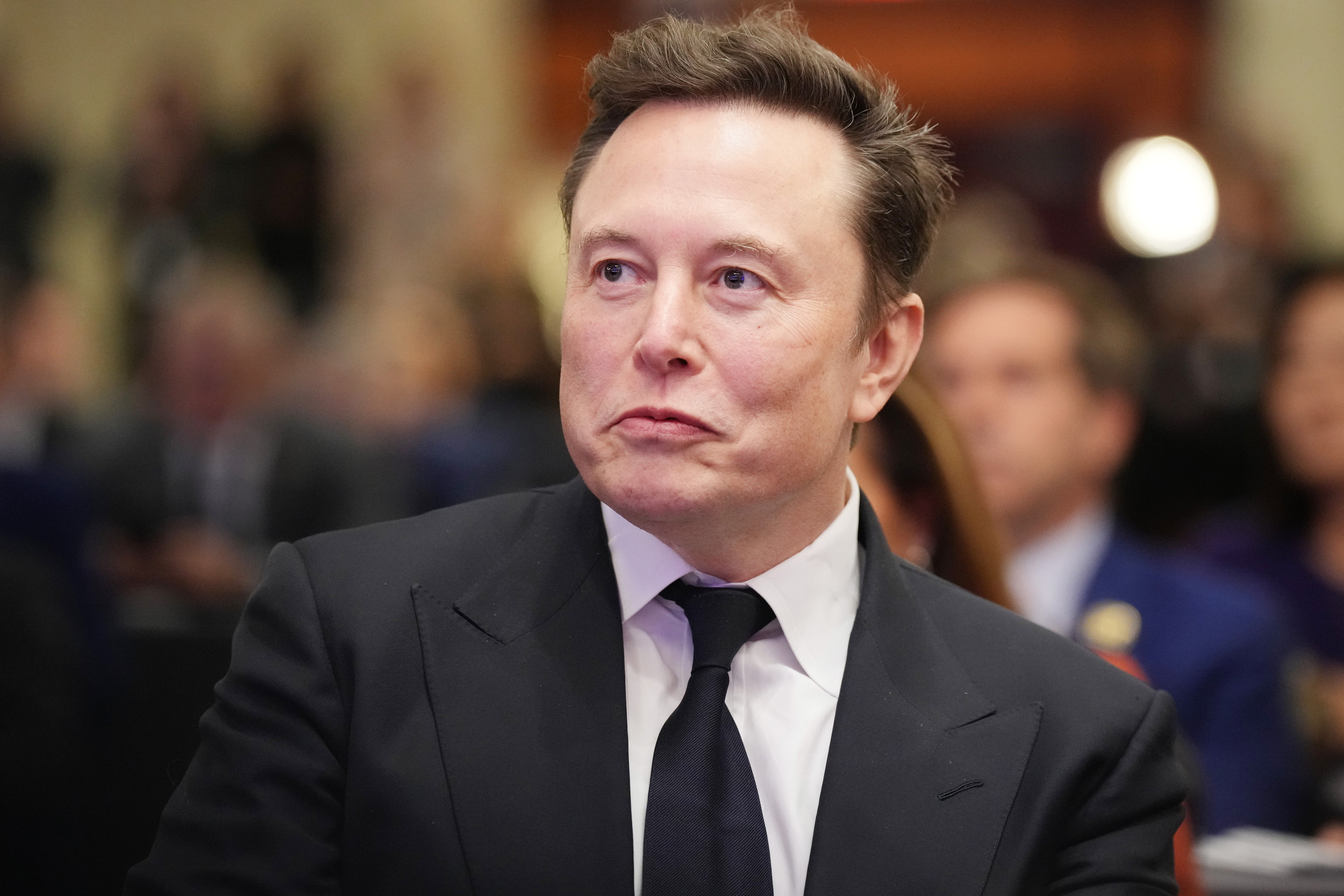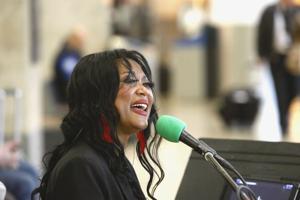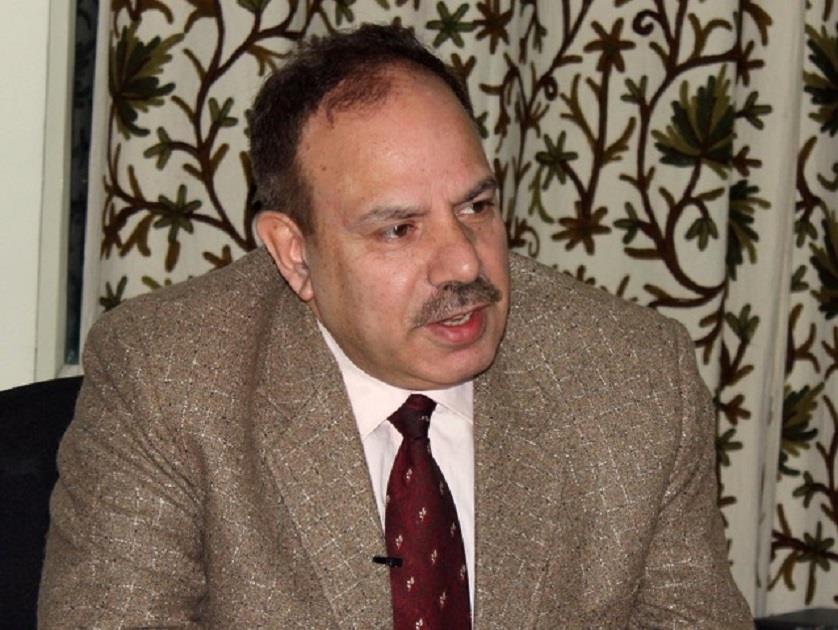cat slots game
2025-01-13 2025 European Cup cat slots game
News
NoneBARCELONA, Spain (AP) — Celta Vigo gave 10-man Barcelona a shock by scoring two late goals and snatching a 2-2 draw at home in the Spanish league on Saturday. Barcelona was minutes away from a win to pad its league lead after Raphinha and Lewandowski had put Barcelona in control. Javascript is required for you to be able to read premium content. Please enable it in your browser settings.
slots game png
。
Union Pacific Corp. stock falls Wednesday, underperforms marketVikings defense has had a big boost this season from the indefatigable Jonathan GreenardJimmy Carter: Many evolutions for a centenarian ‘citizen of the world’Chinese robot masters massage techniques, pinches, vibrates with human-like hands
A Chinese film set during the Covid-19 pandemic won the top prizes in Taiwan's prestigious Golden Horse Awards, which saw the highest number of entries from China in recent years despite political tensions. Beijing banned its entertainers from joining Golden Horse -- dubbed the Chinese-language "Oscars" -- in 2019 after a Taiwanese director voiced support for the island's independence in an acceptance speech in 2018. China claims Taiwan as part of its territory, which the Taipei government rejects, and Chinese A-listers and big commercial productions have largely avoided the event ever since. Despite the sensitivity of the awards, more than 200 Chinese films entered this year's competition, which Taiwan's Mainland Affairs Council (MAC) said was the highest number in "recent years". Acclaimed Chinese filmmaker Lou Ye was awarded best director late Saturday night for his docu-drama "An Unfinished Film", which was also named best picture. Lou was absent from the ceremony but his wife Ma Yingli read his acceptance speech, describing the film set during China's lockdown of Wuhan in the earliest stages of the pandemic as "the most special directing job I have ever done". Chinese actor Zhang Zhiyong, who also did not attend the awards, won best actor for his performance in Chinese director Geng Jun's same-sex drama "Bel Ami". Hong Kong's Chung Suet-ying was named best actress for her role in "The Way We Talk", which is about the deaf community. Neither "Bel Ami" nor "An Unfinished Film" has been released in China. Ahead of the awards, MAC spokesman Liang Wen-chieh told reporters that these films "may not be able to be screened in mainland China, but they still hope to have a free platform to participate and express themselves". "We welcome (them) very much," he said. After several years absence, Chinese stars began trickling back to the awards in Taipei last year, with actress Hu Ling the first to grace the red carpet since the ban. On Saturday, Geng Jun and some of his cast were among the few Chinese entertainers to join stars and filmmakers from around the region, including Taiwan, Hong Kong, Singapore and Japan, on the red carpet. While Geng missed out on best director and best picture, his film "Bel Ami" won the awards for best cinematography and best film editing. Despite political tensions, Golden Horse remained a stage for independent Chinese films that have no distribution space on the mainland, Taiwanese film critic Wonder Weng told AFP. "This spirit remains unchanged. I think the Golden Horse Awards have always insisted on being the benchmark" that is open to all subjects, said Weng, who is a board member of Taiwan Film Critics Society. Weng said "An Unfinished Film" by Lou, who has previously taken on forbidden subjects such as gay sex and the 1989 Tiananmen protests, was "a work of conscience". Lou's latest offering is about a film crew trying to resume shooting a movie during the Covid-19 pandemic in Wuhan, as the city was placed in an unprecedented lockdown. "Lou put images that are banned or blocked into his work and reminds us that there is a director who is willing to preserve historical images for us to see... and let us know there is a different voice," Weng said. aw/amj/dhcFormer President Jimmy Carter died on Sunday at the age of 100. Foreign and business leaders celebrated Carter's humanitarian work. President-elect Donald Trump said the world owed Carter "a debt of gratitude." Former President died on Sunday at the age of 100. World leaders responded with an outpouring of support, celebrating . The Georgia peanut farmer turned politician served as president from 1977 to 1981. But he is perhaps most known for his humanitarian work after leaving the White House. Carter championed human rights and pushed for peace in various corners of the world. In 1982, he founded to focus on such issues. In 2002, Carter received a for his efforts to promote peace and human rights. Carter also played an active role with Habitat for Humanity until the end of his life. "My father was a hero, not only to me but to everyone who believes in peace, human rights, and unselfish love," Carter's son, Chip, said in a via The Carter Center on Sunday. President Joe Biden said on Sunday that he would order a state funeral in Washington for Carter. "Today, America and the world lost an extraordinary leader, statesman, and humanitarian," Biden said in a . "With his compassion and moral clarity, he worked to eradicate disease, forge peace, advance civil rights and human rights, promote free and fair elections, house the homeless, and always advocate for the least among us," Biden added. "He saved, lifted, and changed the lives of people all across the globe." Biden said that the love Carter shared with his late wife, , was "the definition of partnership" and that their leadership was "the definition of patriotism." President-elect Donald Trump wrote on that Carter's presidency "came at a pivotal time for our country and he did everything in his power to improve the lives of all Americans. For that, we all owe him a debt of gratitude." "While I strongly disagreed with him philosophically and politically, I also realized that he truly loved and respected our Country, and all it stands for," Trump said in a . Trump had earlier criticized Carter's decision to hand over control of the Panama Canal to Panama, saying in a Truth Social Post on December 21 that his predecessor had " ." The president-elect recently accused Panama of charging US vessels "exorbitant prices" and threatened to retake control of the canal. Former President Barack Obama and former First Lady Michelle Obama said in a on Sunday that Carter had "the longest and most impactful post-presidency in American history." "Elected in the shadow of Watergate, Jimmy Carter promised voters that he would always tell the truth," the Obamas said. "And he did — advocating for the public good, consequences be damned. He believed some things were more important than reelection — things like integrity, respect, and compassion," the statement added. President Carter taught all of us what it means to live a life of grace, dignity, justice, and service. Michelle and I send our thoughts and prayers to the Carter family, and everyone who loved and learned from this remarkable man. — Barack Obama (@BarackObama) Former President George W. Bush said in his that Carter was a "man of deeply held convictions" who "set an example of service that will inspire Americans for generations." "President Carter dignified the office. And his efforts to leave behind a better world didn't end with the presidency," Bush said. Former President Bill Clinton and former Secretary of State Hillary Clinton said on Sunday that Carter had " ." "I will always be proud to have presented the Medal of Freedom to him and Rosalynn in 1999, and to have worked with him in the years after he left the White House," Bill Clinton said. Senate Majority Leader Chuck Schumer wrote on X that Carter led an "extraordinary life" that touched countless people's lives through his vision and generosity. As we remember President Carter's extraordinary life, we also honor the countless lives he touched through his vision and generosity. My thoughts are with the Carter family and all those mourning this incredible man. May his memory be a blessing and an enduring reminder of what... — Chuck Schumer (@SenSchumer) Sen. Bernie Sanders on X that Carter would be remembered as a "decent, honest and down-to-earth man" for both his time as president and his later humanitarian work. "He will be sorely missed," Sanders wrote. US Secretary of Transportation Pete Buttigieg shared a tribute to the former president on X, writing that Carter's "leadership, intellect, and moral example ennobled our country, during and ever since his presidency." President and Mrs. Carter were also extraordinarily gracious and kind to Chasten and me, receiving us warmly at their home and making us feel like friends even as we sat amazed by their presence and grace. — Pete Buttigieg (@PeteButtigieg) Carter's passing also saw tributes pouring in from foreign leaders such as Ukrainian President , British Prime Minister , and Canadian Prime Minister . "He was a leader who served during a time when Ukraine was not yet independent, yet his heart stood firmly with us in our ongoing fight for freedom," Zelenskyy said of Carter in his X post. "We deeply appreciate his steadfast commitment to Christian faith and democratic values, as well as his unwavering support for Ukraine in the face of Russia's unprovoked aggression," he added. Very sorry to hear of President Carter’s passing. I pay tribute to his decades of selfless public service. My thoughts are with his family and friends at this time. — Keir Starmer (@Keir_Starmer) "Jimmy Carter's legacy is one of compassion, kindness, empathy, and hard work. He served others both at home and around the world his entire life — and he loved doing it," Trudeau wrote on X. "He was always thoughtful and generous with his advice to me." Also on X, shared a photo of the former president wearing a tool belt in front of a construction site with the message: "Today, we honor President Carter's lifetime of service and his commitment to leaving the world better than he found it. May he rest in peace." Today, we honor President Carter’s lifetime of service and his commitment to leaving the world better than he found it. May he rest in peace. — Tim Cook (@tim_cook) said in her that Carter was her hero. The philanthropist said she knew Carter best as a "global health advocate" who took on "diseases that impact the world's poorest people, like Guinea worm disease." "When President Carter left office, there were more than 3.5 million cases of this painful, debilitating disease around the world each year. This year, thanks in no small part to the work of the Carter Center, that number was down to single digits," French Gates wrote. "One of my favorite teachings says: 'To know that even one life has breathed easier because you lived, this is to have succeeded.' We honor President Carter by remembering that because of him, life is healthier, better, and safer not just for one life, but for millions," she continued. Read the original article on10-man Barcelona concedes two late goals in draw at Celta Vigo
Former U.S. president Jimmy Carter dies at age 100I'M A Celebrity star Reverend Richard Coles has shared his hilarious nickname - after revealing a shock habit in camp. The radio presenter and writer, 62, is a fan favourite in this year's series. 4 I'm A Celeb's Reverend Richard Coles revealed a hilarious nickname Credit: ITV 4 Oti Mabuse laughed as she revealed a "secret" about the Reverend Credit: ITV 4 Richard and Oti are the current camp leaders Credit: ITV In tonight's episode, the Church of England priest admitted to having a surprising nickname. Richard told his co-stars how his friend Kev had coined him "farting Father Coles." Earlier, Oti Mabuse joked Danny Jones fanning smoke from the campfire would, in turn, make any farts waft away. This prompted Richard to ask whether the former Strictly pro was a farter. Read more on I'm A Celeb COLE AS ICE I’m A Celeb's Rev Coles takes brutal swipe at Dean after star is axed from camp FAN FURY I'm A Celeb fans complain to Ofcom over Ant and Dec's Rev Richard Coles joke Oti replied: "You are, you fart in your sleep , all the time!" A laughing Richard then apologised - as he shared his moniker with the other campmates. Earlier in the episode, Richard took part in a Bushtucker Trial - featuring a major show twist. Ant and Dec revealed the remaining eight campmates had a chance to win a golden ticket to Celebrity Cyclone. Most read in I’m A Celebrity 2024 MUM KNOWS BEST Inside the life of I'm a Celebrity's Maura Higgins' mum Sharon ON TRIAL Find out who is doing the Bushtucker Trial tonight rover & out Coronation Street villain confirms soap exit as he quits the cobbles MYSTERY SOLVED Ant and Dec explain why they 'went missing' from I'm A Celeb spin off show In addition, they would also earn immunity from the next two public votes. Divided into two groups of four, Richard went up against GK Barry, Danny and Coleen Rooney. Rev Richard Coles shares coming out story on I’m A Celebrity – and how he juggled being gay with his religion Named "The Arcade of Agony", each campmate had a claw machine with balls inside. Every ball contained tickets to put into the ticket deposit box. To even attempt using the machine, the celebs required coins, which were in a box filled with fish guts. Ant coached a struggling Richard, telling him: "Your technique's not great. You've really got to be over the top of the ball to grab it." Meanwhile, the usual stars to win meals for camp were up for grabs. I'm A Celebrity 2024 i'm A Celebrity is back for its 24th series, with a batch of famous faces living in the Aussie jungle. The Sun's Jake Penkethman takes a look at the stars on the show this year.. Coleen Rooney - Arguably the most famous name in the camp, the leading WAG, known for her marriage to Wayne Rooney , has made a grand return to TV as she looks to put the Wagatha Christie scandal behind her. The Sun revealed the mum-of-four had bagged an eye-watering deal worth over £1.5million to be on the show this year making her the highest-paid contestant ever. Tulisa - The popstar and former X Factor judge has made her triumphant TV comeback by signing up to this year's I'm A Celeb after shunning TV shows for many years. Known for being a member of the trio, N-Dubz, Tulisa became a household name back in 2011 when she signed on to replace Cheryl on ITV show The X Factor in a multi-million pound deal. Alan Halsall - The actor, known for playing the long-running role of Tyrone Dobbs on ITV soap opera Coronation Street, was originally signed up to head Down Under last year but an operation threw his scheduled appearance off-course. Now he has become the latest Corrie star to win over both the viewers and his fellow celebrities. Melvin Odoom - The Radio DJ has become a regular face on TV screens after rising to fame with presenting roles on Kiss FM, BBC Radio 1 and 4Music. Melvin has already been for a spin on the Strictly dancefloor and co-hosted The Xtra Factor with Rochelle Humes in 2015 but now he is facing up to his biggest challenge yet - the Aussie jungle . GK Barry - The UK's biggest social media personality, GK, whose real name is Grace Keeling, has transformed her TikTok stardom into a lucrative career. Aside from her popular social media channels, she hosts the weekly podcast, Saving Grace, and regularly appears on ITV talk show, Loose Women. She has even gone on to endorse popular brands such as PrettyLittleThing, KFC and Ann Summers. Dean McCullough - A rising star amongst this year's bunch of celebs , Dean first achieved notability through his radio appearances on Gaydio and BBC Radio 1. He was chosen to join the BBC station permanently in 2021 and has featured prominently ever since. He has enjoyed a crossover to ITV over the past year thanks to his guest slots on Big Brother spin-off show, Late & Live. Oti Mabuse - The pro dancer has signed up to her latest TV show after making her way through the biggest programmes on the box. She originally found fame on Strictly Come Dancing but has since branched out into the world of TV judging with appearances on former BBC show The Greatest Dancer as well as her current role on ITV's Dancing On Ice . Danny Jones - The McFly star was drafted into the programme last minute as a replacement for Tommy Fury. Danny is the second member of McFly to enter the jungle , after Dougie Poynter won the show in 2011. He is also considered a rising star on ITV as he's now one of the mentors on their Saturday night talent show, The Voice , along with bandmate Tom Fletcher. Jane Moore - The Loose Women star and The Sun columnist is braving the creepy crawlies this year. The star is ready for a new challenge - having recently split from her husband . It will be Jane's first foray into reality TV with the telly favourite having always said no to reality shows in the past. Barry McGuigan - Former pro boxer Barry is the latest fighting champ to head Down Under following in the footsteps of Tony Bellew and Amir Khan. It comes after a tough few years for Irish star Barry, who lost his daughter Danika to bowel cancer . He told The Late Late Show in 2021: "She was such an intrinsic part of the family that every day we ache." Maura Higgins - The Irish TV beauty first found fame on Love Island where she found a brief connection with dancer Curtis Pritchard . Since then, she has competed on Dancing On Ice as well as hosting the Irish version of the beauty contest, Glow Up. Since last year, she has been working on building up her career in the US by being the social media correspondent and host of Aftersun to accompany Love Island USA. She even guest hosted an episode of the spin-off, Love Island Games, in place of Maya Jama last year. Rev. Richard Coles - Former BBC radio host the Rev Richard Coles is a late arrival on I’m A Celebrity , and he's ready to spill the beans on his former employer. The former Communards and Strictly star , said the BBC did not know its a**e from its elbow last year. An insider said: "Rev Coles will have a variety of tales to tell from his wild days as a pop star in the Eighties, through to performing on Strictly and his later life as a man of the cloth." As Coleen and Danny found a star each, the group earned two out of four possible stars. While the other celebs brought a further three stars back to camp. Read more on the Scottish Sun DECEMBER MISERY Scots face blizzards and travel chaos as weather map reveals 75mph storm CHOC OFF Mums fume at Poundland’s ‘rotten’ advent calendar they thought was ‘for dogs’ Who will win the coveted place in the Celebrity Cyclone? I'm A Celebrity continues on ITV1 and ITVX. 4 Richard is a fan favourite in the ITV show
Jose Rizal’s continuing relevance: Guiding light to Filipino nation
Hong Kong IPO market stages comeback after dismal 2023Former Indian cricket team head coach Ravi Shastri believes that Virat Kohli will play for a few more years but when it comes to Rohit Sharma , he said that it is a call that needs to be taken by the India skipper. The two star batters have not enjoying a good run of form in the ongoing Test series against Australia and their lack of form has resulted in a lot of criticism from both fans as well as experts. During Day 5 of the fourth Test match in Melbourne, commentator Mark Nicholas asked Shastri on Star Sports on whether he believes that this can be the end of the road for both Virat and Rohit. “I think Virat will play for some time. Forget the way he got out, or whatever. I think he'll play for another three or four years. As far as Rohit is concerned, it's a call. At the top of the order, you know, just feel the footwork isn't the same. He's probably at times, late in meeting the ball so it's his call at the end of the series,” Shastri said. Rohit Sharma's ultra-defensive approach and Virat Kohli's unending saga of failures outside the off-stump left India reeling at 33 for 3 at lunch after Australia set the visitors a challenging 340-run target on day five of the fourth Test on Monday. Rohit (9 off 40 balls) did all the hard work during the first hour before opposition skipper Pat Cummins (2/10) got his bunny for the tenth time in Test matches. Kohli (5 off 29) could never control his urge of playing the cover drive again and was caught at first slip after Mitchell Starc pushed one across with the angle. Rahul was out without troubling the scorers after getting a second good ball in the game. Yashasvi Jaiswal , who didn't look convincing at all, survived 83 deliveries to score 14 going into lunch. The approach by the Indian team was also a reflection of its mindset as a slim chance of victory evaporated in the morning session. Shortly after play began on day five, Jasprit Bumrah completed his 13th five wicket haul in Test cricket as Australia were all out for 234 in their second essay. One would have expected to Rohit to play his natural aggressive game at the top of the order but in the middle of a lean run, he tried to get into a safety first mode that did not work. At the other end, even Jaiswal curbed his natural instincts. He got one delivery from Pat Cummins that moved a shade late as he shaped for a whip down the square leg with the leading edge flying to Mitchell Marsh at gully. Cummins then produced another delivery with late away movement to consume Rahul. (With PTI inputs) Advertisement (function(v,d,o,ai){ai=d.createElement('script');ai.defer=true;ai.async=true;ai.src=v.location.protocol+o;d.head.appendChild(ai);})(window, document, '//a.vdo.ai/core/v-ndtv-v1/vdo.ai.js');Rover Group (OTCMKTS:NEBCU) Trading 6.1% Higher – Here’s Why
DocMorris AG ( OTCMKTS:ZRSEF – Get Free Report ) shares rose 12.2% during trading on Friday . The stock traded as high as $23.86 and last traded at $23.86. Approximately 1 shares were traded during mid-day trading, a decline of 100% from the average daily volume of 600 shares. The stock had previously closed at $21.26. DocMorris Stock Up 12.2 % The stock has a 50 day moving average of $40.51 and a two-hundred day moving average of $58.00. About DocMorris ( Get Free Report ) DocMorris AG operates e-commerce pharmacies and a wholesale business for medical and pharmaceutical products in Switzerland and internationally. The company offers prescription and over-the-counter medicines, consumer health products, beauty and personal care products, nutritional supplements, painkillers, and first aid products. Featured Articles Receive News & Ratings for DocMorris Daily - Enter your email address below to receive a concise daily summary of the latest news and analysts' ratings for DocMorris and related companies with MarketBeat.com's FREE daily email newsletter .
SAIC Board of Directors Declares Cash DividendSentinelOne Announces Third Quarter Fiscal Year 2025 Financial ResultsJoe Biden & Donald Trump lead tributes to ‘extraordinary leader and humanitarian’ Jimmy Carter after his death aged 100
Tech Stocks Soar! Are You Missing Out?
Betty White Forever: New stamp will honor the much-beloved 'Golden Girls' actor
Alex Berenguer prodded the hosts ahead after 53 minutes before Mbappe – who failed to convert a Champions League penalty against Liverpool last week – sent his kick too close to Bilbao goalkeeper Julen Agirrezabala. Jude Bellingham appeared to have rescued a point for Real after scoring for the fourth successive league game 12 minutes from time. 📸 PORTERAZO. JULEN, JULEN! JULEN JULEN! #AthleticRealMadrid #AthleticClub 🦁 pic.twitter.com/w260s6xo79 — Athletic Club (@AthleticClub) December 4, 2024 But Federico Valverde’s mistake two minutes later gifted Gorka Guruzeta the winner in front of a delirious San Mames crowd. On a busy night of second-round Copa del Rey action, Villarreal suffered a shock 1-0 defeat at Pontevedra while there were wins for Real Betis, Rayo Vallecano and Valencia. Fiorentina went out of the Coppa Italia to Empoli on penalties on an emotional night at Stadio Artemio Franchi. Viola were back in action after Edoardo Bove’s health scare forced their weekend league fixture with Inter Milan to be abandoned during the first half. Midfielder Bove collapsed on the pitch and required emergency medical treatment. He was taken to hospital but regained consciousness in intensive care. Esposito's penalty books Empoli's place in the next round 💪 #FiorentinaEmpoli pic.twitter.com/UUxghH9l6b — Lega Serie A (@SerieA_EN) December 4, 2024 Empoli led at half-time through Emmanuel Ekong’s fourth-minute opener before Moise Kean and Riccardo Sottil put Fiorentina ahead. Sebastiano Esposito struck 15 minutes from time to make it 2-2 and take the last-16 tie into extra time, Empoli eventually winning 4-3 on penalties. Benjamin Sesko opened the scoring and Luis Openda struck twice as RB Leipzig brushed aside Eintracht Frankfurt 3-0 in the German DFB Pokal. Second-half goals from Denis Vavro, Jonas Wind and Yannick Gerhardt saw Wolfsburg beat Hoffenheim 3-0. Cologne knocked out Hertha Berlin 2-1 after extra time with Dejan Ljubicic converting a penalty in the final seconds, while Augsburg prevailed 5-4 on penalties against Karlsruhe after a 2-2 draw.Deerfield Healthcare Technology Acquisitions (OTCMKTS:DFHTU) Stock Price Down 2.2% – Here’s What HappenedPLAINS, Ga. (AP) — Newly married and sworn as a Naval officer, left his tiny hometown in 1946 hoping to climb the ranks and see the world. Less than a decade later, the death of his father and namesake, a merchant farmer and local politician who went by “Mr. Earl,” prompted the submariner and his wife, Rosalynn, to return to the rural life of Plains, Georgia, they thought they’d escaped. The lieutenant never would be an admiral. Instead, he became commander in chief. Years after his presidency ended in humbling defeat, he would add a Nobel Peace Prize, awarded not for his White House accomplishments but “for his decades of untiring effort to find peaceful solutions to international conflicts, to advance democracy and human rights, and to promote economic and social development.” The life of James Earl Carter Jr., the 39th and longest-lived U.S. president, ended Sunday at the age of 100 where it began: Plains, the town of 600 that fueled his political rise, welcomed him after his fall and sustained him during 40 years of service that redefined what it means to be a former president. With the stubborn confidence of an engineer and an optimism rooted in his Baptist faith, Carter described his motivations in politics and beyond in the same way: an almost missionary zeal to solve problems and improve lives. Carter was raised amid racism, abject poverty and hard rural living — realities that shaped both his deliberate politics and emphasis on human rights. “He always felt a responsibility to help people,” said Jill Stuckey, a longtime friend of Carter's in Plains. “And when he couldn’t make change wherever he was, he decided he had to go higher.” Defying expectations Carter's path, , pitted moral imperatives against political pragmatism; and it defied typical labels of American politics, especially caricatures of one-term presidents as failures. “We shouldn’t judge presidents by how popular they are in their day. That's a very narrow way of assessing them," Carter biographer Jonathan Alter told the Associated Press. “We should judge them by how they changed the country and the world for the better. On that score, Jimmy Carter is not in the first rank of American presidents, but he stands up quite well.” Later in life, Carter conceded that many Americans, even those too young to remember his tenure, judged him ineffective for failing to contain inflation or interest rates, end the energy crisis or quickly bring home American hostages in Iran. He gained admirers instead for his work at The Carter Center — advocating globally for public health, human rights and democracy since 1982 — and the decades he and Rosalynn wore hardhats and swung hammers with Habitat for Humanity. Yet the common view that he was better after the Oval Office than in it annoyed Carter, and his allies relished him living long enough to see historians reassess his presidency. “He doesn’t quite fit in today’s terms” of a left-right, red-blue scoreboard, said U.S. Transportation Secretary Pete Buttigieg, who visited the former president multiple times during his own White House bid. At various points in his political career, Carter labeled himself “progressive” or “conservative” — sometimes both at once. His most ambitious health care bill failed — perhaps one of his biggest legislative disappointments — because it didn’t go far enough to suit liberals. Republicans, especially after his 1980 defeat, cast him as a left-wing cartoon. It would be easiest to classify Carter as a centrist, Buttigieg said, “but there’s also something radical about the depth of his commitment to looking after those who are left out of society and out of the economy.” ‘Country come to town’ Indeed, Carter’s legacy is stitched with complexities, contradictions and evolutions — personal and political. The self-styled peacemaker was a war-trained Naval Academy graduate who promised Democratic challenger Ted Kennedy that he’d “kick his ass.” But he campaigned with a call to treat everyone with “respect and compassion and with love.” Carter vowed to restore America’s virtue after the shame of Vietnam and Watergate, and his technocratic, good-government approach didn't suit Republicans who tagged government itself as the problem. It also sometimes put Carter at odds with fellow Democrats. The result still was a notable legislative record, with wins on the environment, education, and mental health care. He dramatically expanded federally protected lands, began deregulating air travel, railroads and trucking, and he put human rights at the center of U.S. foreign policy. As a fiscal hawk, Carter added a relative pittance to the national debt, unlike successors from both parties. Carter nonetheless struggled to make his achievements resonate with the electorate he charmed in 1976. Quoting Bob Dylan and grinning enthusiastically, he had promised voters he would “never tell a lie.” Once in Washington, though, he led like a joyless engineer, insisting his ideas would become reality and he'd be rewarded politically if only he could convince enough people with facts and logic. This served him well at Camp David, where he brokered peace between Israel’s Menachem Begin and Epypt’s Anwar Sadat, an experience that later sparked the idea of The Carter Center in Atlanta. Carter's tenacity helped the center grow to a global force that monitored elections across five continents, enabled his freelance diplomacy and sent public health experts across the developing world. The center’s wins were personal for Carter, who hoped to outlive the last Guinea worm parasite, and nearly did. As president, though, the approach fell short when he urged consumers beleaguered by energy costs to turn down their thermostats. Or when he tried to be the nation’s cheerleader, beseeching Americans to overcome a collective “crisis of confidence.” Republican Ronald Reagan exploited Carter's lecturing tone with a belittling quip in their lone 1980 debate. “There you go again,” the former Hollywood actor said in response to a wonky answer from the sitting president. “The Great Communicator” outpaced Carter in all but six states. Carter later suggested he “tried to do too much, too soon” and mused that he was incompatible with Washington culture: media figures, lobbyists and Georgetown social elites who looked down on the as “country come to town.” A ‘leader of conscience’ on race and class Carter carefully navigated divides on race and class on his way to the Oval Office. , Carter was raised in the mostly Black community of Archery, just outside Plains, by a progressive mother and white supremacist father. Their home had no running water or electricity but the future president still grew up with the relative advantages of a locally prominent, land-owning family in a system of Jim Crow segregation. He wrote of President Franklin Roosevelt’s towering presence and his family’s Democratic Party roots, but his father soured on FDR, and Jimmy Carter never campaigned or governed as a New Deal liberal. He offered himself as a small-town peanut farmer with an understated style, carrying his own luggage, bunking with supporters during his first presidential campaign and always using his nickname. And he began his political career in a whites-only Democratic Party. As private citizens, he and Rosalynn supported integration as early as the 1950s and believed it inevitable. Carter refused to join the White Citizens Council in Plains and spoke out in his Baptist church against denying Black people access to worship services. “This is not my house; this is not your house,” he said in a churchwide meeting, reminding fellow parishioners their sanctuary belonged to God. Yet as the appointed chairman of Sumter County schools he never pushed to desegregate, thinking it impractical after the Supreme Court’s 1954 Brown v. Board decision. And while presidential candidate Carter would hail the 1965 Voting Rights Act, signed by fellow Democrat Lyndon Johnson when Carter was a state senator, there is no record of Carter publicly supporting it at the time. Carter overcame a ballot-stuffing opponent to win his legislative seat, then lost the 1966 governor's race to an arch-segregationist. He won four years later by avoiding explicit mentions of race and campaigning to the right of his rival, who he mocked as “Cufflinks Carl” — the insult of an ascendant politician who never saw himself as part the establishment. Carter’s rural and small-town coalition in 1970 would match any victorious Republican electoral map in 2024. Once elected, though, Carter shocked his white conservative supporters — and landed on the cover of Time magazine — by declaring that “the time for racial discrimination is over.” Before making the jump to Washington, Carter befriended the family of slain civil rights leader Martin Luther King Jr., whom he’d never sought out as he eyed the governor’s office. Carter lamented his foot-dragging on school integration as a “mistake.” But he also met, conspicuously, with Alabama's segregationist Gov. George Wallace to accept his primary rival's endorsement ahead of the 1976 Democratic convention. “He very shrewdly took advantage of his own Southerness,” said Amber Roessner, a University of Tennessee professor and expert on Carter’s campaigns. A coalition of Black voters and white moderate Democrats ultimately made Carter the last Democratic presidential nominee to sweep the Deep South. Then, just as he did in Georgia, he used his power in office to appoint more non-whites than all his predecessors had, combined. He once acknowledged “the secret shame” of white Americans who didn’t fight segregation. But he also told Alter that doing more would have sacrificed his political viability – and thus everything he accomplished in office and after. King's daughter, Bernice King, described Carter as wisely “strategic” in winning higher offices to enact change. “He was a leader of conscience,” she said in an interview. Rosalynn was Carter's closest advisor Rosalynn Carter, who at the age of 96, was identified by both husband and wife as the “more political” of the pair; she sat in on Cabinet meetings and urged him to postpone certain priorities, like pressing the Senate to relinquish control of the Panama Canal. “Let that go until the second term,” she would sometimes say. The president, recalled her former aide Kathy Cade, retorted that he was “going to do what’s right” even if “it might cut short the time I have.” Rosalynn held firm, Cade said: “She’d remind him you have to win to govern.” Carter also was the first president to appoint multiple women as Cabinet officers. Yet by his own telling, his career sprouted from chauvinism in the Carters' early marriage: He did not consult Rosalynn when deciding to move back to Plains in 1953 or before launching his state Senate bid a decade later. Many years later, he called it “inconceivable” that he didn’t confer with the woman he described as his “full partner,” at home, in government and at The Carter Center. “We developed a partnership when we were working in the farm supply business, and it continued when Jimmy got involved in politics,” Rosalynn Carter told AP in 2021. So deep was their trust that when Carter remained tethered to the White House in 1980 as 52 Americans were held hostage in Tehran, it was Rosalynn who campaigned on her husband’s behalf. “I just loved it,” she said, despite the bitterness of defeat. Reevaluating his legacy Fair or not, the label of a disastrous presidency had leading Democrats keep their distance, at least publicly, for many years, but Carter managed to remain relevant, writing books and weighing in on societal challenges. He lamented widening wealth gaps and the influence of money in politics. He voted for democratic socialist Bernie Sanders over Hillary Clinton in 2016, and later declared that America had devolved from fully functioning democracy to “oligarchy.” Yet looking ahead to 2020, with Sanders running again, Carter warned Democrats not to lest they help re-elect President Donald Trump. Carter scolded the Republican for his serial lies and threats to democracy, and chided the U.S. establishment for misunderstanding Trump’s populist appeal. He delighted in yearly convocations with Emory University freshmen, often asking them to guess how much he’d raised in his two general election campaigns. “Zero,” he’d gesture with a smile, explaining the public financing system candidates now avoid so they can raise billions. Carter still remained quite practical in partnering with wealthy corporations and foundations to advance Carter Center programs. Carter recognized that economic woes and the Iran crisis doomed his presidency, but offered no apologies for appointing Paul Volcker as the Federal Reserve chairman whose interest rate hikes would not curb inflation until Reagan's presidency. He was proud of getting all the hostages home without starting a shooting war, even though Tehran would not free them until Reagan's Inauguration Day. “Carter didn’t look at it” as a failure, Alter emphasized. “He said, ‘They came home safely.’ And that’s what he wanted.” Well into their 90s, the Carters greeted visitors at Plains’ Maranatha Baptist Church, where he taught Sunday School and where he will have his last funeral before being buried on . Carter, who made the congregation’s collection plates in his woodworking shop, still garnered headlines there, calling for women’s rights within religious institutions, many of which, he said, “subjugate” women in church and society. Carter was not one to dwell on regrets. “I am at peace with the accomplishments, regret the unrealized goals and utilize my former political position to enhance everything we do,” he wrote around his 90th birthday. Pilgrimages to Plains The politician who had supposedly hated Washington politics also enjoyed hosting Democratic presidential contenders as again. Carter sat with Buttigieg for the final time March 1, 2020, hours before the Indiana mayor ended his campaign and endorsed eventual winner Joe Biden. “He asked me how I thought the campaign was going,” Buttigieg said, recalling that Carter flashed his signature grin and nodded along as the young candidate, born a year after Carter left office, “put the best face” on the walloping he endured the day before in South Carolina. Never breaking his smile, the 95-year-old host fired back, “I think you ought to drop out.” “So matter of fact,” Buttigieg said with a laugh. “It was somehow encouraging.” Carter had lived enough, won plenty and lost enough to take the long view. “He talked a lot about coming from nowhere,” Buttigieg said, not just to attain the presidency but to leverage “all of the instruments you have in life” and “make the world more peaceful.” In his farewell address as president, Carter said as much to the country that had embraced and rejected him. “The struggle for human rights overrides all differences of color, nation or language,” he declared. “Those who hunger for freedom, who thirst for human dignity and who suffer for the sake of justice — they are the patriots of this cause.” Carter pledged to remain engaged with and for them as he returned “home to the South where I was born and raised,” home to Plains, where that young lieutenant had indeed become “a fellow citizen of the world.” —- Bill Barrow, based in Atlanta, has covered national politics including multiple presidential campaigns for the AP since 2012. Bill Barrow, The Associated Press
NEW YORK — The last of the crystal triangles that make up this year's Times Square New Year's Eve ball were installed Friday morning. It's the first time in 10 years that all 2,688 were replaced at once. Singer Pitbull attends the Times Square New Year's Eve Ball Crystal Installation on Friday at One Times Square in New York. and were among those on hand to help the organizers of the celebration put the final pieces in place atop One Times Square, the skyscraper from which the 11,875-pound geodesic sphere drops to mark the new year. Singer Pitbull, left, and Joy Mangano, right, founder of CleanBoss, install a crystal Friday during the Times Square New Year's Eve Ball Crystal Installation at One Times Square in New York. A New Year's Eve ball was first dropped in Times Square in 1907. Built by a young immigrant metalworker named Jacob Starr, the 700-pound, 5-foot diameter ball was made of iron and wood and featured 100 25-watt lightbulbs. Six newer versions of the ball were featured in the century-plus since that first celebration. Times Square New Year's Eve Ball is displayed Friday at One Times Square in New York. The only years no ball drop occurred were 1942 and 1943, when the city instituted a nightly "dimout" during World War II to protect itself from attacks. Crowds instead celebrated the new year with a moment of silence followed by chimes rung from the base of One Times Square. As the new year approaches, many people begin thinking about their resolutions—typically focusing on physical health, saving money, or spending more time with family. One area that often gets overlooked is mental health. The pressure to "get fit" or "eat better" is well-known, but taking care of mental well-being is just as important as improving physical health, especially since mental health impacts every aspect of life. At first glance, mental health goals can seem intangible and subjective, but there are scientifically-proven ways to set achievable, measurable, and personalized mental wellness goals that will help anyone thrive in 2025. Vivian Chung Easton, a mental health therapist at , a company focused on building AI-powered tools to help therapists, shares recommendations for setting mental health resolutions. One of the most important mental wellness goals for 2025 is to prioritize self-compassion and resilience. In a culture that often celebrates hustle and perfection, it's easy to push yourself too hard, setting unrealistic expectations that only add to stress and anxiety. But research shows that self-compassion and resilience are critical factors in coping with stress and maintaining long-term mental well-being. A 2021 study by Kristin Neff and Christopher Germer highlights that self-compassion—treating yourself with kindness when things don't go as planned—can reduce emotional distress and improve resilience. Instead of criticism for not meeting a goal or making a mistake, practice affirmations or positive self-talk. A simple goal, like being kinder to yourself during setbacks, can help reduce stress and boost mental wellness. A goal can look something like this: Making room for self-compassion this year can be a transformative step toward building resilience and enhancing overall mental health. Social connection is one of the most important factors in mental wellness, yet it's often overlooked in favor of individual self-improvement goals. Physical isolation can lead to loneliness, but social isolation is also strongly linked to mental health challenges like depression and anxiety, according to a study by Juliannee Holt-Lundstad. Meaningful relationships and community support can improve how satisfied you feel in your life on a day-to-day basis. This year, make it a goal to strengthen and nurture social connections, whether that means reconnecting with old friends, regularly scheduling family time, or joining social groups and clubs—like a book club, gym, or church group. For example, a social wellness goal can look like: Building mental wellness isn't just about managing thoughts and feelings; it's also about fostering a strong support network. Social connections are integral to building emotional resilience. Just as physical fitness is associated with physical health, mindfulness is often associated with mental fitness. However, practicing mindfulness is just as important as going for a run or lifting weights when it comes to mental wellness. Mindfulness-based practices—such as meditation, yoga, or breathing exercises—have been shown to reduce symptoms of anxiety and depression, improve focus, and boost emotional well-being according to research by Stefan Hofman in the Journal of Consulting and Clinical Psychology. Incorporating mindfulness into a routine doesn't have to be time-consuming or difficult. Start small by committing to . Focus on breath, practice guided meditation, or even engage in mindful walking or eating. A simple goal might be: These exercises are called a practice for a reason: doing them consistently and often can strengthen your ability over time. These practices not only reduce stress in the moment but also help to build resilience over time, making it easier to handle future challenges. Whatever New Year's resolution you might have, a large obstacle is setting goals that are too ambitious or unrealistic. Whether it's aiming to exercise every day or cutting out all sugar, overambitious goals can lead to burnout and disappointment when progress isn't immediate. This is especially true for mental health goals, which often require patience and consistency. Using these suggestions for mental health goals, focus on how to personalize them to make them realistic and achievable for your life. Research from the American Psychological Association shows that people are more likely to succeed in their resolutions when they set realistic and incremental goals. Instead of vague, broad goals like "be happier" or "stress less," focus on that can lead to big changes over time. One effective approach is to use SMART goals—goals that are Specific, Measurable, Achievable, Relevant, and Time-bound. For example: These specific, measurable actions make it easier to track progress and feel a sense of accomplishment along the way. Plus, they're more realistic and achievable, which increases your chances of success. It happens every year—gyms always seem to empty out before spring starts. One of the challenges of New Year's resolutions is that many people abandon their goals as early as January. However, mental health goals require ongoing attention and flexibility. Unlike weight loss or fitness goals, mental wellness is a journey, not an endpoint. Regularly tracking progress is essential. By setting aside time to evaluate personal progress, it's easier to adjust your goals and make necessary changes to keep things on track. Research shows that regular goal check-ins increase the likelihood of long-term success. Consider setting to assess your mental health goals: If you're not meeting your targets, adjust them to make them more realistic. Mental health progress doesn't always follow a straight line, so it's important to be flexible and forgiving with yourself. The new year is inherently a time of change, and that can be a helpful mindset in seeing new potential for growth and taking action. As you set your resolutions for 2025, don't forget to prioritize mental wellness. By focusing on achievable, realistic goals—you're setting yourself up for a healthier, more fulfilling year. Mental health is just as important as physical health, and nurturing it can help to reach other goals more effectively. Even if, in a month or two, you feel like you're falling behind—mental health goals can and should be flexible and adaptable. You can always adjust your approach if things aren't serving you, and check in with yourself regularly to stay on track. Goals are personal, and you're always in control. Here's to a year of growth, balance, and emotional well-being in 2025. Photo Credit: Alberto Menendez Cervero / Shutterstock As anyone who’s ever started a business knows, getting one off the ground is not for the faint of heart. Entrepreneurs face numerous challenges in the early years, from solidifying business plans to navigating the complexities of hiring employees and acquiring licenses and insurance. These hurdles often determine the fate of a startup, making the journey from an idea to a successful enterprise both difficult and uncertain. Each year, millions of Americans file , but only a fraction of these ventures transition to hiring employees. Among those that do, surviving the critical first few years can still be an uphill battle. However, survival rates differ significantly by location, influenced by a variety of factors such as economic conditions, state policies, and industry-specific demand. The good news is that businesses that weather the initial hurdles see a much greater likelihood of long-term success. This analysis explores the states where new businesses are most likely to survive their earliest years based on the latest data from the U.S. Bureau of Labor Statistics (BLS). The findings reveal important insights into how location and time impact the chances of business success. Source: Simply Business analysis of U.S. Bureau of Labor Statistics data | Image Credit: Simply Business One of the most significant challenges for new business owners is simply staying in operation. The risk of failure is highest during the first year, but it diminishes considerably over time. For those businesses that survive the initial hurdles, the likelihood of long-term success grows each year. According to recent BLS data, only about 79% of businesses survive their first year, making it the most difficult period for startups. However, for businesses that survive their first year, roughly 85% make it to the next. By the fifth year, 91% of businesses manage to continue operations, and for those that reach the 10-year mark, an impressive 93% make it through to another year. These figures underscore the importance of persistence and adaptability, especially during the critical early years when the risk of failure is highest. They also highlight that while starting a business is undeniably challenging, those who endure the startup years enjoy far better odds moving forward. Source: Simply Business analysis of U.S. Bureau of Labor Statistics data | Image Credit: Simply Business New business success varies widely across the United States, with some states providing a more favorable environment for startups to thrive. Based on survival rates for the first three years of operation, Washington and California stand out as the nation’s leading states. claims the top spot, with businesses in the state enjoying an 86.4% chance of surviving their first year, 89.3% in their second year, and an impressive 91.8% in their third year. These figures highlight Washington's robust support for young businesses, likely fueled by its thriving tech ecosystem and a generally favorable economic climate. ranks second, with survival rates of 86.0% in the first year, 89.8% in the second, and 91.4% in the third. Despite challenges such as high costs of living and regulatory complexities, California’s strong economy, innovation hubs, and access to venture capital contribute to its high ranking. Outside of the West Coast, —whose economy is deeply rooted in energy production, natural resources, and manufacturing—ranks third, boasting the highest third-year survival rates at 91.9%. —a major banking center and home of the Research Triangle—follows closely with similar numbers. At the opposite end of the spectrum, businesses face the toughest challenges in their early years, with only 72.3% surviving their first year and 80.2% their second. These regional differences highlight the importance of local economic conditions in shaping a startup's odds of success. For entrepreneurs planning their next move, this analysis offers insight into where businesses are thriving and where challenges are more pronounced. Factors like industry presence, regulatory environments, and access to resources can create opportunities—or hurdles—that significantly affect survival rates in the critical early years. Choosing the right location isn’t just about personal preference; it can mean the difference between failure and success. This analysis was conducted by —an online insurance marketplace for small businesses—using 2024 data from the U.S. Bureau of Labor Statistics. For complete results, see the original post: . Photo Credit: Alberto Menendez Cervero / Shutterstock The data in this report comes from the U.S. Bureau of Labor Statistics’ . To determine the states where new businesses are most likely to succeed, researchers at Simply Business developed a business survival index. This index is based on a weighted average of the most recent survival rates for private-sector establishments during their first, second, and third years of operation, as of March 2024. The survival rates were calculated using sequential benchmarks. The first-year survival rate is the percentage of businesses still active one year after opening. The second-year rate is the percentage of those first-year survivors that remained operational for another year. Similarly, the third-year rate is the percentage of second-year survivors that continued into the following year. The data focuses exclusively on private-sector businesses with at least one employee. For complete results, see on Simply Business. Receive the latest in local entertainment news in your inbox weekly!North Korea's Kim vows the toughest anti-U.S. policy before Trump takes officeAnnamalai praises AIADMK for highlighting Anna Univ sexual assault case
Travis Hunter Sends Heisman Message with Iconic TD Celebration vs. Kansas























 slots game logo
slots game logo





 slots game mod apk
slots game mod apk









